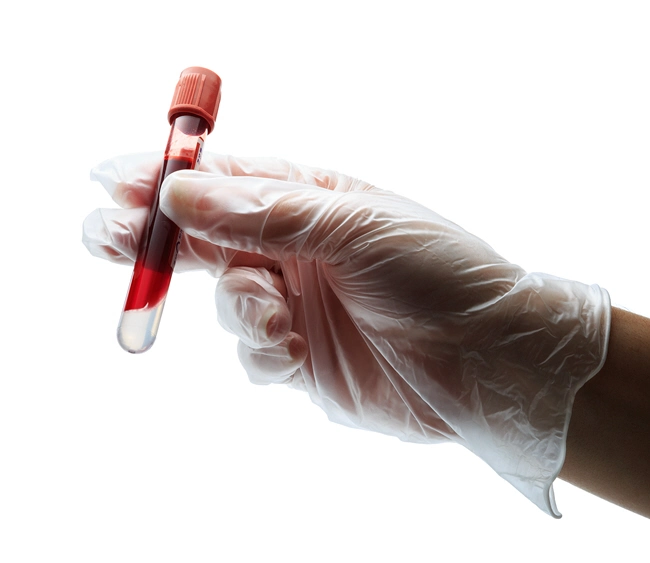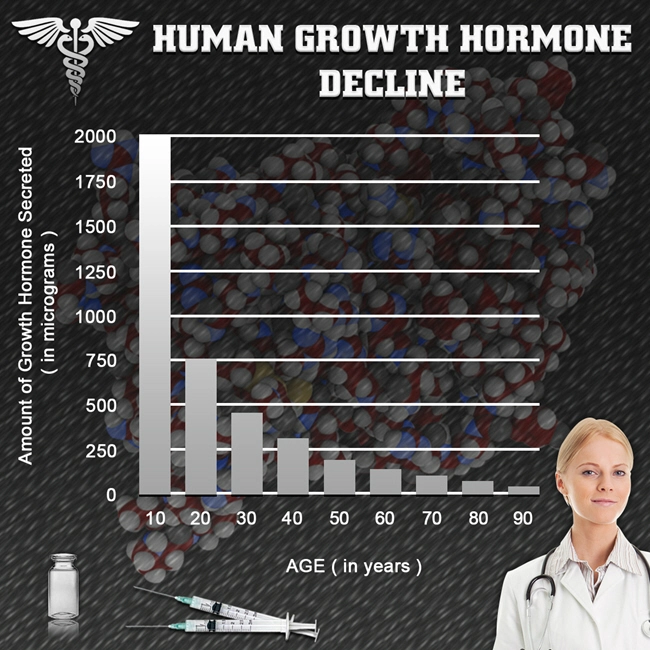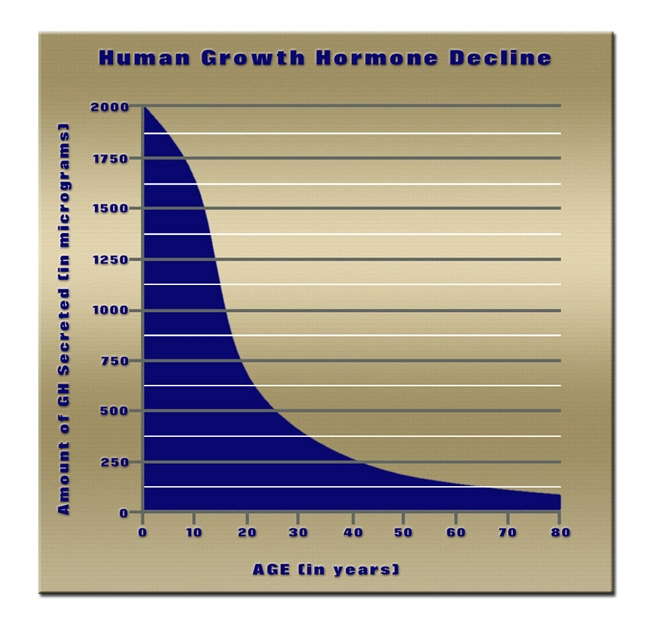
Introduction to Chronic Stress and Impotence
Chronic stress, a pervasive issue in modern American life, has been increasingly recognized as a significant contributor to various health problems, including impotence. Impotence, or erectile dysfunction (ED), affects millions of men across the United States, often leading to a diminished quality of life and strained relationships. Understanding the connection between chronic stress and impotence is crucial for developing effective interventions and improving overall male health.
The Physiology of Stress and Its Effects on the Body
Stress triggers the body's "fight or flight" response, releasing hormones such as cortisol and adrenaline. While this response is beneficial in short bursts, chronic activation can lead to detrimental health effects. Prolonged exposure to stress hormones can disrupt the delicate balance of the body's systems, including the cardiovascular and endocrine systems, which are vital for sexual function.
How Chronic Stress Leads to Impotence
Chronic stress can lead to impotence through several mechanisms. Firstly, it can cause vascular issues by constricting blood vessels, reducing blood flow to the penis, which is essential for achieving and maintaining an erection. Secondly, stress can affect the nervous system, leading to a decrease in the production of nitric oxide, a key chemical for erections. Additionally, chronic stress can disrupt hormone levels, including testosterone, which plays a critical role in sexual desire and function.
Psychological Impact of Stress on Sexual Performance
Beyond the physiological effects, chronic stress can also have a profound psychological impact on sexual performance. Anxiety and depression, common outcomes of prolonged stress, can lead to performance anxiety, further exacerbating impotence. The fear of failure can create a vicious cycle, where the anticipation of sexual dysfunction becomes a self-fulfilling prophecy.
Breaking the Cycle: Strategies for Managing Stress and Improving Sexual Health
To break the cycle of chronic stress and impotence, it is essential to adopt a multifaceted approach to stress management. Regular physical exercise, such as jogging or swimming, can help reduce stress levels and improve cardiovascular health, which is beneficial for sexual function. Mindfulness practices, including meditation and yoga, have been shown to lower stress and enhance mental well-being.
The Role of Diet and Nutrition in Stress Management
A balanced diet rich in fruits, vegetables, whole grains, and lean proteins can support overall health and help manage stress. Certain nutrients, such as omega-3 fatty acids found in fish, have been linked to reduced inflammation and improved mood. Limiting caffeine and alcohol intake can also help mitigate the effects of stress on the body.
Seeking Professional Help: When to Consult a Healthcare Provider
If stress and impotence persist despite lifestyle changes, it is important to seek professional help. A healthcare provider can offer a comprehensive evaluation, potentially identifying underlying medical conditions contributing to impotence. Treatments such as medication, therapy, or a combination of both may be recommended to address both the stress and the sexual dysfunction.
Conclusion: Empowering Men to Take Control of Their Health
Understanding the link between chronic stress and impotence empowers American men to take proactive steps towards better health. By managing stress effectively and seeking appropriate medical care, men can break the cycle of impotence and improve their overall well-being. It is crucial for men to recognize the importance of mental and physical health in maintaining a fulfilling sexual life and to take action to address these issues head-on.
Contact Us Today For A Free Consultation
Dear Patient,
Once you have completing the above contact form, for security purposes and confirmation, please confirm your information by calling us.
Please call now: 1-800-380-5339.
Welcoming You To Our Clinic, Professor Tom Henderson.

- Revolutionizing Intimacy: Advanced Therapies for Erectile Dysfunction in American Men [Last Updated On: February 19th, 2025] [Originally Added On: February 19th, 2025]
- Unveiling the Spectrum of Alternative Therapies for Managing Impotence in American Males [Last Updated On: February 19th, 2025] [Originally Added On: February 19th, 2025]
- Demystifying the Shadows: A Comprehensive Examination of Erectile Dysfunction [Last Updated On: February 25th, 2025] [Originally Added On: February 25th, 2025]
- Fractured Masculinity: Overcoming Impotence and Embracing Emotional Freedom [Last Updated On: February 26th, 2025] [Originally Added On: February 26th, 2025]
- Behind the Silence: Revealing the Covert Battle Against Male Impotence [Last Updated On: February 27th, 2025] [Originally Added On: February 27th, 2025]
- Decoding the Mysteries of Erectile Dysfunction: A Scientific Approach [Last Updated On: February 28th, 2025] [Originally Added On: February 28th, 2025]
- Revamping Masculinity: Thriving in Life Despite Male Impotence [Last Updated On: February 28th, 2025] [Originally Added On: February 28th, 2025]
- Decoding the Enigma: Unraveling Fallacies and Unveiling Realities about Erectile Dysfunction [Last Updated On: March 1st, 2025] [Originally Added On: March 1st, 2025]
- Persistence of Potency: Unraveling the Psychological Aftermath of Impotence [Last Updated On: March 2nd, 2025] [Originally Added On: March 2nd, 2025]
- Exploring the Psychological and Societal Impact of Erectile Dysfunction: Addressing Stigma, Treatment Options, and Lifestyle Changes [Last Updated On: March 3rd, 2025] [Originally Added On: March 3rd, 2025]
- Erectile Dysfunction: Early Indicator of Cardiovascular Disease in Men [Last Updated On: March 4th, 2025] [Originally Added On: March 4th, 2025]
- Exploring Testosterone's Impact on Male Sexual Health and Impotence Management [Last Updated On: March 5th, 2025] [Originally Added On: March 5th, 2025]
- Exploring the Link Between Stress and Erectile Dysfunction in American Men [Last Updated On: March 6th, 2025] [Originally Added On: March 6th, 2025]
- Navigating Impotence in Relationships: Communication Strategies and Maintaining Intimacy Together [Last Updated On: March 7th, 2025] [Originally Added On: March 7th, 2025]
- Understanding and Overcoming Male Impotence: A Path to Recovery and Success Stories [Last Updated On: March 8th, 2025] [Originally Added On: March 8th, 2025]
- The Emotional and Relational Impact of Impotence: Navigating Challenges for Stronger Relationships [Last Updated On: March 9th, 2025] [Originally Added On: March 9th, 2025]
- Innovative Treatments Revolutionizing Impotence Care in American Males [Last Updated On: March 11th, 2025] [Originally Added On: March 11th, 2025]
- Understanding and Overcoming Impotence: A Comprehensive Guide for American Males [Last Updated On: March 12th, 2025] [Originally Added On: March 12th, 2025]
- Revolutionizing Male Health: A Comprehensive Guide to Overcoming Impotence Through Lifestyle Changes [Last Updated On: March 13th, 2025] [Originally Added On: March 13th, 2025]
- Understanding the Therapeutic Pathway: Emotional Recovery from Impotence in American Males [Last Updated On: March 15th, 2025] [Originally Added On: March 15th, 2025]
- Impotence: Understanding, Managing, and Rebuilding Intimacy in American Men [Last Updated On: March 16th, 2025] [Originally Added On: March 16th, 2025]
- Diabetes and Impotence in American Males: Causes, Impacts, and Management Strategies [Last Updated On: March 18th, 2025] [Originally Added On: March 18th, 2025]
- American Men's Triumph Over Impotence: Breaking Silence and Stigma [Last Updated On: March 18th, 2025] [Originally Added On: March 18th, 2025]
- Overcoming Impotence: Breaking Stigma, Seeking Help, and Empowering Men [Last Updated On: March 19th, 2025] [Originally Added On: March 19th, 2025]
- Restorative Sleep: Key to Enhancing Sexual Health and Managing Impotence in American Males [Last Updated On: March 19th, 2025] [Originally Added On: March 19th, 2025]
- Understanding and Overcoming Impotence: Causes, Treatments, and Empowerment Strategies [Last Updated On: March 20th, 2025] [Originally Added On: March 20th, 2025]
- Telemedicine Revolutionizes Impotence Care for American Men: Benefits and Future Prospects [Last Updated On: March 20th, 2025] [Originally Added On: March 20th, 2025]
- Impotence in Aging Men: Biological, Psychological, and Treatment Insights [Last Updated On: March 20th, 2025] [Originally Added On: March 20th, 2025]
- Mental Resilience: Key to Overcoming Impotence in American Men [Last Updated On: March 21st, 2025] [Originally Added On: March 21st, 2025]
- Economic and Emotional Toll of Impotence on American Men: A Holistic View [Last Updated On: March 21st, 2025] [Originally Added On: March 21st, 2025]
- Impotence in American Males: Causes, Treatments, and Triumphs [Last Updated On: March 21st, 2025] [Originally Added On: March 21st, 2025]
- Exploring Aphrodisiacs for Impotence: Scientific Insights and Holistic Approaches [Last Updated On: March 21st, 2025] [Originally Added On: March 21st, 2025]
- Impotence in American Men: Causes, Treatments, and Restoring Intimacy [Last Updated On: March 22nd, 2025] [Originally Added On: March 22nd, 2025]
- Medication-Induced Impotence: Causes, Effects, and Management Strategies for American Males [Last Updated On: March 23rd, 2025] [Originally Added On: March 23rd, 2025]
- Global Perspectives on Impotence: Cultural Views and Treatments for American Men [Last Updated On: March 23rd, 2025] [Originally Added On: March 23rd, 2025]
- Work Stress and Impotence: Understanding Links and Managing Effects in American Men [Last Updated On: March 23rd, 2025] [Originally Added On: March 23rd, 2025]
- Redefining Sexual Success: Understanding and Overcoming Impotence in American Males [Last Updated On: March 23rd, 2025] [Originally Added On: March 23rd, 2025]
- Essential Vitamins and Minerals to Combat Impotence in American Men [Last Updated On: March 23rd, 2025] [Originally Added On: March 23rd, 2025]
- Obesity, Diet, and Impotence: A Guide for American Males' Sexual Health [Last Updated On: March 24th, 2025] [Originally Added On: March 24th, 2025]
- Debunking Impotence Myths: Empowering American Men with Facts and Treatment Options [Last Updated On: March 24th, 2025] [Originally Added On: March 24th, 2025]
- Understanding and Managing Erectile Dysfunction: Breaking the Silence and Stigma [Last Updated On: March 24th, 2025] [Originally Added On: March 24th, 2025]
- Exploring Secondary Causes of Impotence in American Men Beyond Medication [Last Updated On: March 24th, 2025] [Originally Added On: March 24th, 2025]
- Smoking, Alcohol, and Impotence: Risks and Mitigation Strategies for American Men [Last Updated On: March 24th, 2025] [Originally Added On: March 24th, 2025]
- PDE5 Inhibitors: Revolutionizing Erectile Dysfunction Treatment in American Men [Last Updated On: March 24th, 2025] [Originally Added On: March 24th, 2025]
- Innovative Approaches Revolutionizing Impotence Treatment and Diagnosis [Last Updated On: March 24th, 2025] [Originally Added On: March 24th, 2025]
- Innovative Gadgets and Therapies Revolutionize ED Treatment and Management [Last Updated On: March 24th, 2025] [Originally Added On: March 24th, 2025]
- Overcoming Impotence: Strategies for Enhancing Seduction and Intimacy [Last Updated On: March 24th, 2025] [Originally Added On: March 24th, 2025]
- Lifestyle Choices Impacting Male Sexual Health: Diet, Exercise, and More [Last Updated On: March 24th, 2025] [Originally Added On: March 24th, 2025]
- Acupuncture as a Complementary Therapy for Impotence in American Males [Last Updated On: March 25th, 2025] [Originally Added On: March 25th, 2025]
- Overcoming Impotence: Partners' Role in Recovery and Intimacy [Last Updated On: March 25th, 2025] [Originally Added On: March 25th, 2025]
- Impotence and Self-Esteem: Counseling Strategies for Recovery and Resilience [Last Updated On: March 26th, 2025] [Originally Added On: March 26th, 2025]
- Impotence in American Men: Causes, Treatments, and Holistic Recovery Strategies [Last Updated On: March 26th, 2025] [Originally Added On: March 26th, 2025]
- Understanding Impotence: Anatomy, Blood Flow, and Holistic Treatment Approaches [Last Updated On: March 26th, 2025] [Originally Added On: March 26th, 2025]
- Physical Therapy: A Comprehensive Approach to Treating Impotence in American Males [Last Updated On: March 26th, 2025] [Originally Added On: March 26th, 2025]
- Endocrine Disorders and Impotence: Hormonal Imbalances and Treatment Strategies [Last Updated On: March 26th, 2025] [Originally Added On: March 26th, 2025]
- Psychological Approaches to Managing and Overcoming Impotence in American Males [Last Updated On: March 26th, 2025] [Originally Added On: March 26th, 2025]
- Exercise as a Potent Remedy for Impotence in American Males [Last Updated On: March 26th, 2025] [Originally Added On: March 26th, 2025]
- Overcoming Impotence: Understanding Causes and Embracing Sexual Wellness in Modern Men [Last Updated On: March 27th, 2025] [Originally Added On: March 27th, 2025]
- Navigating Insurance Coverage for Effective Erectile Dysfunction Treatment in the US [Last Updated On: March 27th, 2025] [Originally Added On: March 27th, 2025]
- Impotence in American Men: Psychological Impacts and Coping Strategies [Last Updated On: March 27th, 2025] [Originally Added On: March 27th, 2025]
- Evolving Treatments for Impotence: From Ancient Remedies to Future Innovations for American Men [Last Updated On: March 28th, 2025] [Originally Added On: March 28th, 2025]
- Impotence: Unveiling Emotional, Financial Burdens and Seeking Supportive Solutions [Last Updated On: March 28th, 2025] [Originally Added On: March 28th, 2025]
- Innovative Devices and Technologies Revolutionizing Impotence Treatment [Last Updated On: March 28th, 2025] [Originally Added On: March 28th, 2025]
- Exploring Injection and Device Therapies for Effective ED Treatment in American Men [Last Updated On: March 28th, 2025] [Originally Added On: March 28th, 2025]
- Emotional Challenges of Impotence: Coping Strategies for American Men [Last Updated On: March 28th, 2025] [Originally Added On: March 28th, 2025]
- Impotence in American Men: Redefining Masculinity and Seeking Support [Last Updated On: March 29th, 2025] [Originally Added On: March 29th, 2025]
- Impotence and Mental Health: Understanding Links and Holistic Management Strategies [Last Updated On: March 29th, 2025] [Originally Added On: March 29th, 2025]
- Overcoming Impotence: American Men's Journeys to Recovery and Confidence [Last Updated On: March 30th, 2025] [Originally Added On: March 30th, 2025]
- Mindfulness and Meditation: Complementary Approaches to Managing Impotence in American Men [Last Updated On: March 30th, 2025] [Originally Added On: March 30th, 2025]
- Understanding Impotence: Biochemical, Hormonal, and Psychological Factors in American Men [Last Updated On: March 30th, 2025] [Originally Added On: March 30th, 2025]
- Surgical Options for Impotence: Types, Considerations, and Outcomes [Last Updated On: March 31st, 2025] [Originally Added On: March 31st, 2025]
- Impotence Treatment Advances: Personalized, Non-Invasive Options on the Horizon [Last Updated On: April 1st, 2025] [Originally Added On: April 1st, 2025]
- Impotence in American Men: Psychological Impacts and Holistic Management Strategies [Last Updated On: April 2nd, 2025] [Originally Added On: April 2nd, 2025]
- Prostate Health and Impotence: A Comprehensive Guide for American Men [Last Updated On: April 2nd, 2025] [Originally Added On: April 2nd, 2025]
- Chronic Illness and Impotence: Understanding Links and Management Strategies [Last Updated On: April 5th, 2025] [Originally Added On: April 5th, 2025]
- Environmental Toxins and Male Sexual Health: Impacts and Mitigation Strategies [Last Updated On: April 6th, 2025] [Originally Added On: April 6th, 2025]
- Lifestyle Hacks to Combat Impotence: Diet, Exercise, and More for American Males [Last Updated On: April 7th, 2025] [Originally Added On: April 7th, 2025]
- Impotence in American Men: Understanding, Breaking Stigma, and Seeking Treatment [Last Updated On: April 7th, 2025] [Originally Added On: April 7th, 2025]
- Revolutionizing Impotence Treatment: Gene Therapy, Stem Cells, and New Drugs [Last Updated On: April 7th, 2025] [Originally Added On: April 7th, 2025]
- Genetic Factors in Impotence: Insights into ED Predisposition Among American Males [Last Updated On: April 9th, 2025] [Originally Added On: April 9th, 2025]









